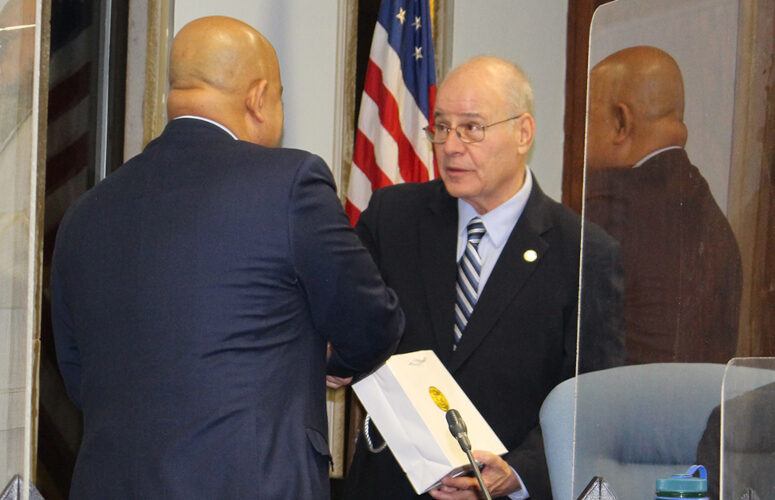
Stockton Receives NJDEP Grant to Research NJ’s Wildlife Management Areas
On Mar 29, 2016Galloway-based Stockton University has received a grant from the New Jersey Department of Environmental Protection’s Division of Fish and Wildlife (NJDFW) to discover: who is using New Jersey’s wildlife management areas (WMAs); what users are doing in these areas; and how stakeholders feel these areas should be managed. The funding totals $632,177, including an in-kind contribution from Stockton in the amount of $179,000.
The NJDFW currently manages a system of 121 wildlife management areas covering nearly 345,000 acres of the state. These areas were initially established as public hunting and fishing grounds. Over the years, the system has evolved into areas where fish and wildlife habitats are protected and enhanced, while providing recreational and educational opportunities.
Catherine A. Tredick, assistant professor of Environmental Studies, and Daniel Moscovici, associate professor of Environmental Studies, applied for the grant.
Tredick and Moscovici, who began the project last year, performed a random statistical sampling of WMAs. They will survey site users in areas including Assunpink, Hammonton Creek, Absecon and Higbee Beach.
A team of researchers will be sampling approximately 10-15 days per month simultaneously in northern, central and southern New Jersey.
“A comprehensive research survey of Assunpink wildlife management area was completed in 1974, but no additional research has been conducted in the past 40 years to determine how much use various WMAs receive annually,” Tredick said. “Given that the demand for wildlife related recreational opportunities has grown significantly over the past 40 years, updated information regarding use and acceptable management of these WMAs is needed.”
Hunting and fishing license fees already pay for use of this protected land, Moscovici explained, and the team’s research will explore if there is a willingness of the public to pay for use of the areas.
“The information we collect in this study will assist the NJDEP with developing management goals for these WMAs consistent with both current use and public opinion of how these areas should be used and managed,” said Tredick, who has 15 years of experience in wildlife research and management.
Project costs include support for faculty; a research coordinator; part-time field technicians; travel support; technical support; project equipment and supplies; and five percent of indirect salary costs.
A post-doctorate fellow from Michigan State University has been hired to oversee project logistics and coordinate fieldwork, and up to seven environmental technicians will conduct surveys in the fields.
The William J. Hughes Center for Public Policy and Stockton Polling Institute will assist with technology and survey training.
“We are really looking forward to working with the New Jersey Department of Environmental Protection and developing ongoing relationships that can benefit our students and the entire population of New Jersey,” Moscovici said.
Tredick received a M.S. and Ph.D. in Wildlife Science from Virginia Tech. She has analyzed survey data related to stakeholder perceptions of black bears and black bear management in Virginia and has several publications related to wildlife ecology and management. She also has extensive experience designing, developing and implementing large-scale research projects in the field.
Moscovici holds a M.S. and Ph.D. in Environmental Planning from the University of Pennsylvania. He has published – or has articles in review – on land preservation and sustainability, historical management of 2.5 million hectares, and paradigm shifts for land preservation. He is co-principal investigator on a tourism/recreation project, Garden State Green Hotels Project, also funded by the NJDEP.
The William J. Hughes Center for Public Policy at Stockton University serves as a catalyst for research on public policy and economic issues facing southern New Jersey. The center sponsors research projects designed to educate New Jersey residents and policy makers about our environmental resources, community development and citizen engagement.
The Stockton Polling Institute, part of the Hughes Center, conducts independent public opinion polling on elections and issues of importance in southern New Jersey and across the state. The institute conducts about a dozen polls each year for the public, faculty, the college and private clients.
Related Articles:





